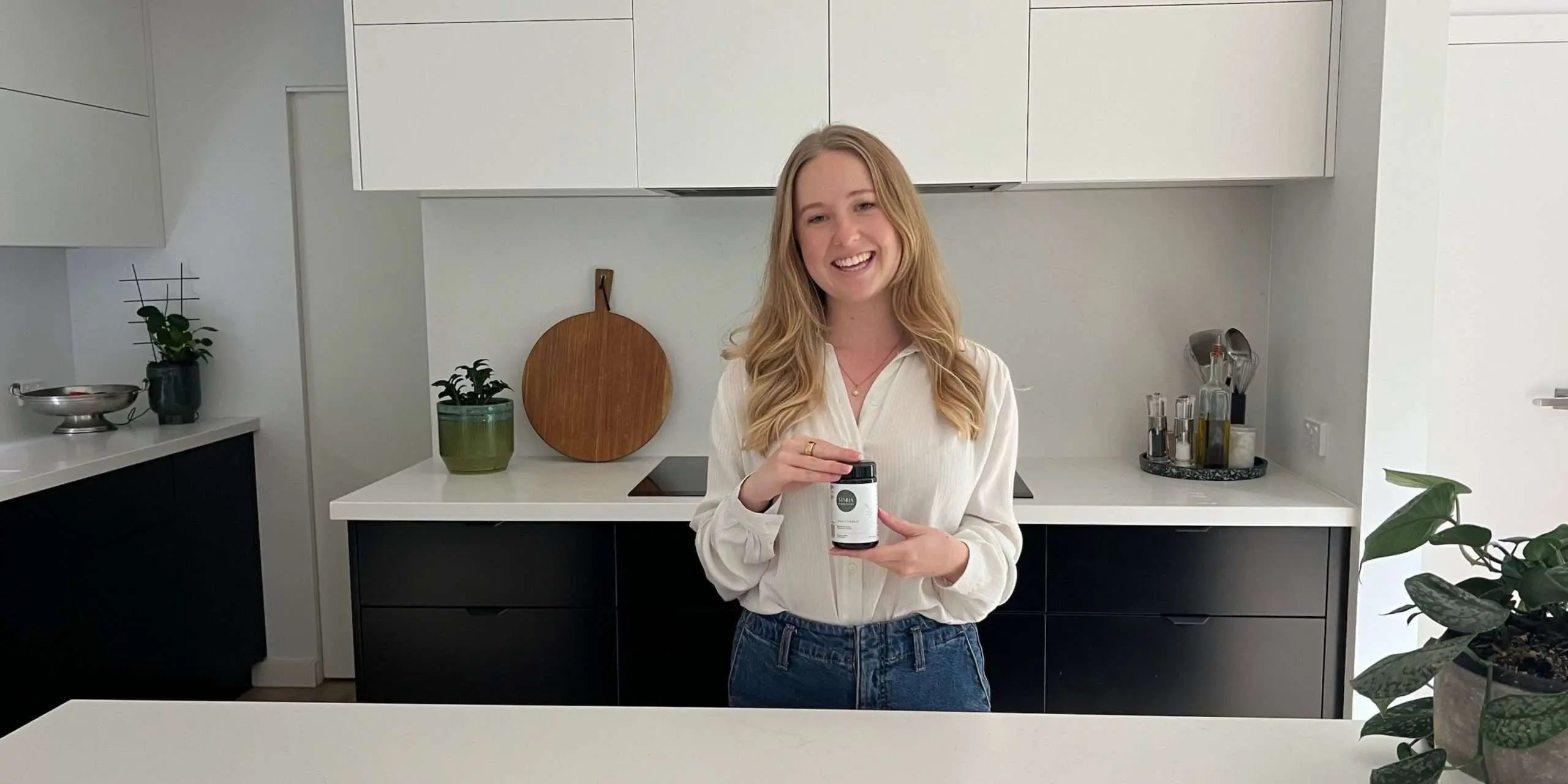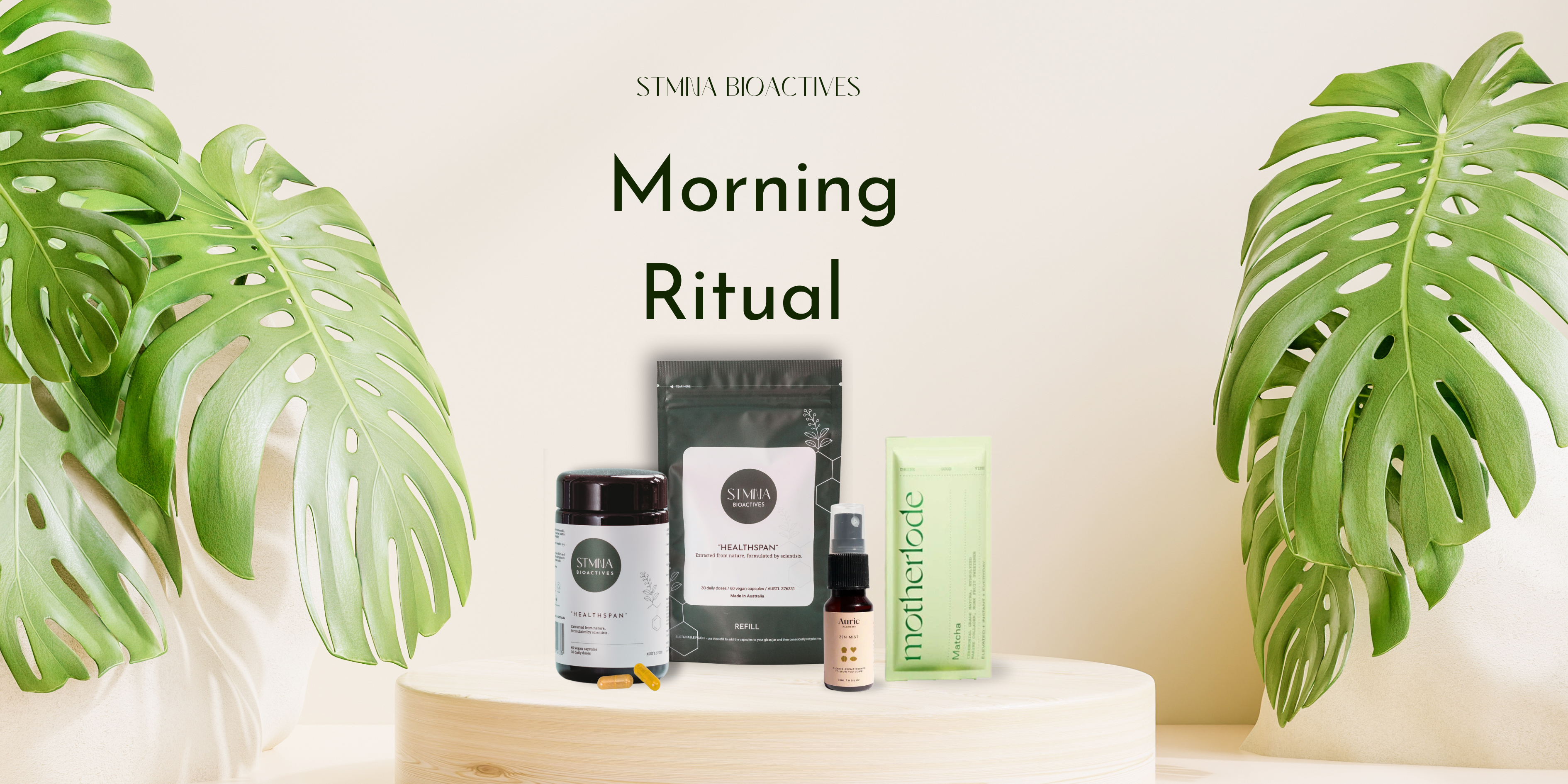5 Lessons I’ve Learned as a Business Owner: Insights from Holly, Founder of STMNA

As the founder of STMNA, a wellness brand that blends biochemistry with holistic health, my entrepreneurial journey has been both challenging and rewarding. Building a business from the ground up requires resilience, adaptability, and a clear vision. Over the years, I’ve learned several key lessons that I believe will resonate with fellow business owners in Australia, especially those in the health and wellness industry. Here are the five most important lessons I’ve learned along the way:
1. Find the Balance Between Science and Nature
At STMNA, our products are formulated using bioactive compounds from plants like curcumin, resveratrol, and ashwagandha, that are scientifically proven to support your health and wellness. But what makes us unique is how we blend that scientific knowledge with holistic health principles. This balance is key to creating products that truly make a difference.
One of the biggest lessons I’ve learned is that consumers don’t just want products backed by science—they want to feel connected to nature and the holistic approach. This blend has allowed us to stand out in a crowded market, appealing to customers who are looking for natural solutions that are scientifically validated. As a business owner, it’s crucial to not only rely on what the data says but also to understand what your customers feel and need. People resonate with a brand that speaks to both their heads and hearts.
2. Sustainability is Non-Negotiable
Sustainability isn’t just a trend—it’s the future of business, especially in the health and wellness space. From our refill pouches to our ingredient sourcing, STMNA is built on the principle of sustainability. I’ve learned that being environmentally conscious isn’t just about doing what’s right for the planet—it’s about doing what’s right for your business.
Customers are increasingly looking for brands that align with their values, and sustainability is one of the key drivers of consumer behaviour today. Whether it’s reducing plastic waste or using ethically sourced ingredients, integrating sustainability into every aspect of your business is a must. And the bonus? It can create deeper loyalty among your customers who appreciate your efforts.
3. Small Businesses Are the Backbone of Australia
Running a small business in Australia has taught me the importance of community. Australia has a rich ecosystem of small businesses that play a vital role in driving economic growth and fostering innovation. Despite challenges like limited resources and intense competition, small businesses bring something to the table that large corporations often lack—genuine connection and personalised service.
The support from fellow entrepreneurs and local communities has been one of the most uplifting parts of my journey. Collaborating with other small businesses and being part of local networks has helped STMNA grow. If you’re an Australian business owner, my advice is to embrace your small size—it’s not a limitation, it’s your strength.
4. The Power of Resilience and Adaptability
Like many small businesses, STMNA has faced its fair share of challenges. From navigating the impact of the global pandemic to managing supply chain disruptions, resilience and adaptability have been crucial. One of the biggest lessons I’ve learned is that it’s not about avoiding challenges—it’s about how you respond to them.
We had to pivot our strategy multiple times, whether it was shifting our focus to e-commerce or rethinking our marketing to better communicate the value of our bioactive supplements. In business, things rarely go as planned, but being adaptable and resilient allows you to not only survive but thrive. The ability to stay flexible in the face of change is what will keep your business moving forward, no matter what the future holds.
5. Audience Education is Key
One of the biggest hurdles we faced at STMNA was educating consumers about the science behind our products. Many people are unfamiliar with bioactive compounds and how they can impact gut health, joint health, and overall wellness. We realised early on that we couldn’t just sell our products—we had to inform and educate.
Creating blog posts, hosting webinars, and engaging with our audience on social media became essential parts of our strategy. Customers today are more informed than ever, but they’re also bombarded with conflicting information. By positioning STMNA as a trusted source of knowledge, we were able to build credibility and trust with our audience. For any small business, especially in niche markets, customer education should be at the core of your strategy.
Final Note
Running STMNA has been an incredible journey filled with both triumphs and challenges. These five lessons—balancing science and nature, committing to sustainability, embracing the strength of small business, being resilient, and prioritising customer education—have shaped the way I lead my business. For anyone starting or growing a small business, I hope these insights help guide you toward your own success. Remember, every challenge is an opportunity to learn, grow, and ultimately thrive.
If you’re interested in learning more about the science of bioactives and how we at STMNA are blending biochemistry with holistic wellness be sure to check out the research page or send through an email if you would like to chat support@stmna.com.au
Frequently Asked Questions
Why is sustainability essential for our future?
Sustainability is pivotal for survival as it balances current needs with the well-being of future generations by preserving natural resources, stopping climate change, and supporting long-term ecological balance.
How do small businesses contribute to Australia‘s economy?
Small businesses are vital to Australia’s economy, fostering innovation, creating job opportunities, and stimulating local communities through diverse service and product offerings. Read more about how small business contribute to the Australian economy here
What role does resilience play in adapting to change?
Resilience acts as a pivot during change, helping individuals adapt by embracing uncertainty, developing flexibility, and recovering quickly from setbacks.
How can educating customers impact a business?
Educating customers fosters trust, elevates brand loyalty, and often leads to higher customer retention and increased referrals, driving sustainable business growth.
Why is the balance between science and nature important?
Maintaining a balance between science and nature is crucial as it sustains ecosystems, supports human health, and advances technological progress harmoniously with our environment.


